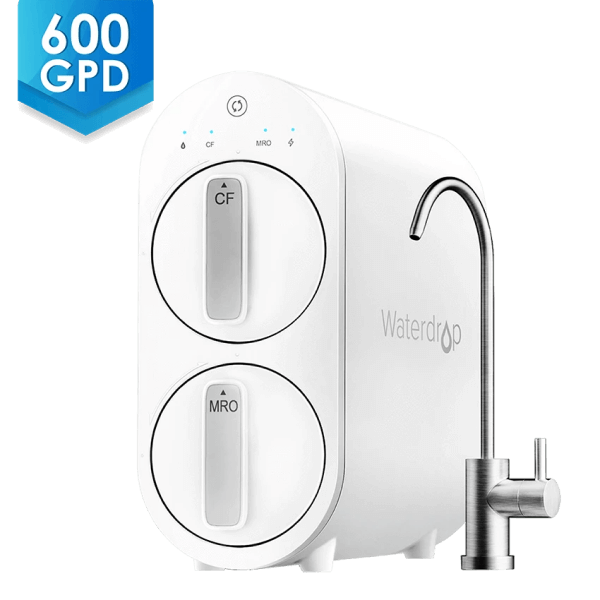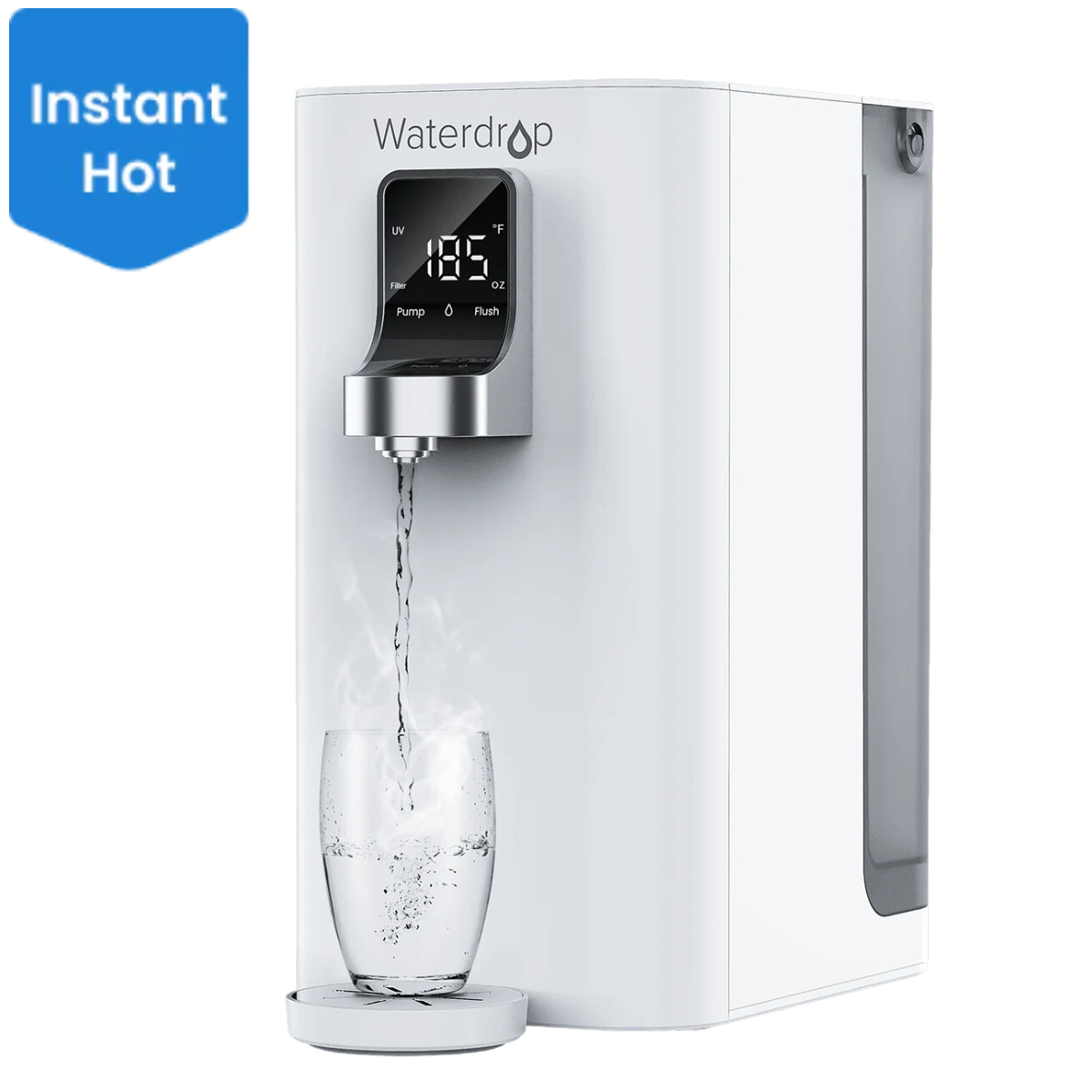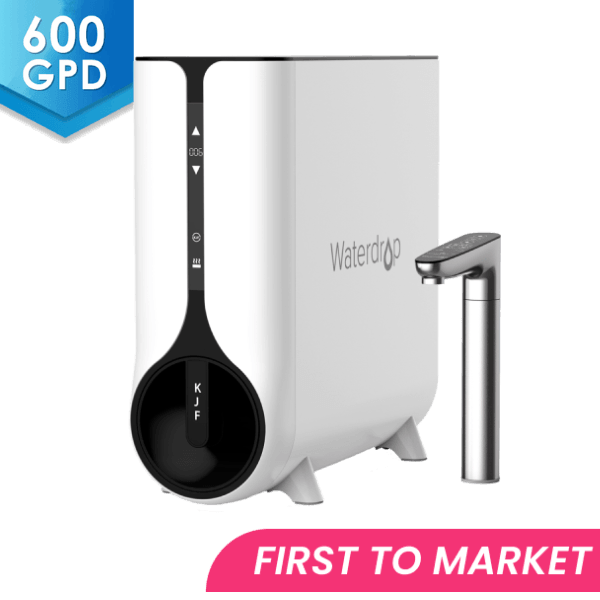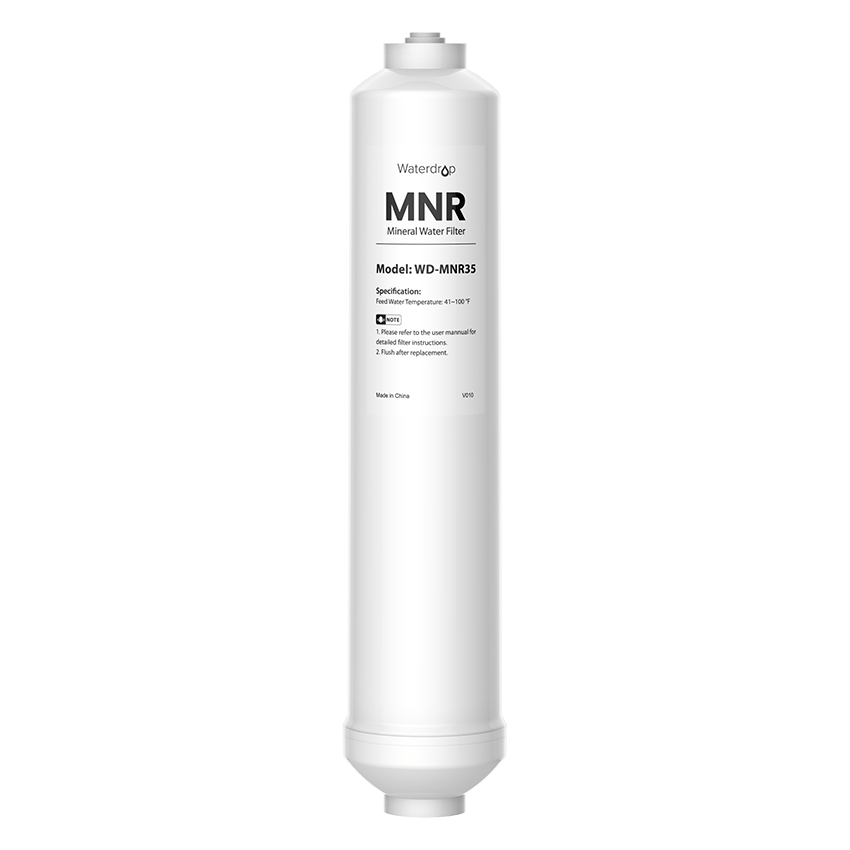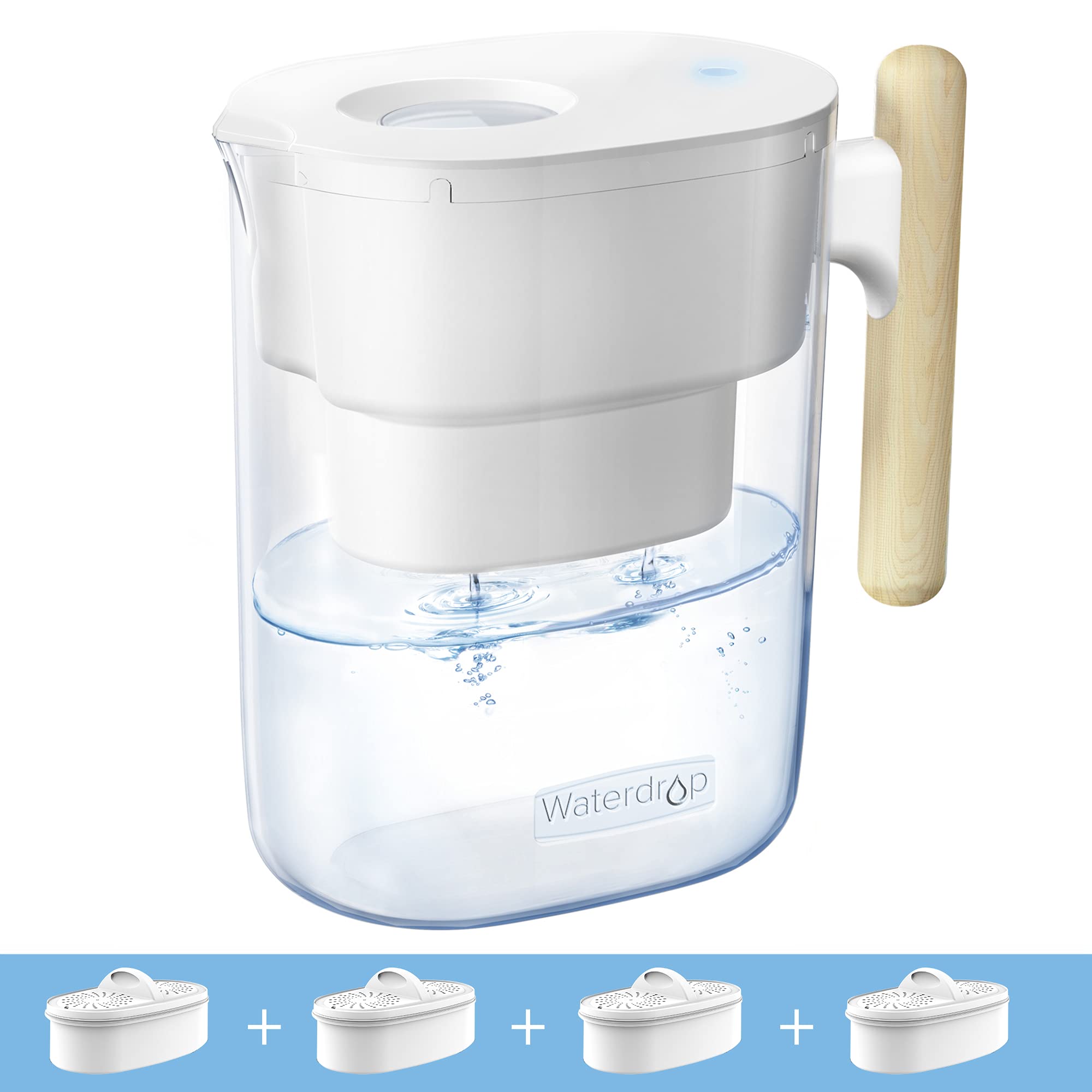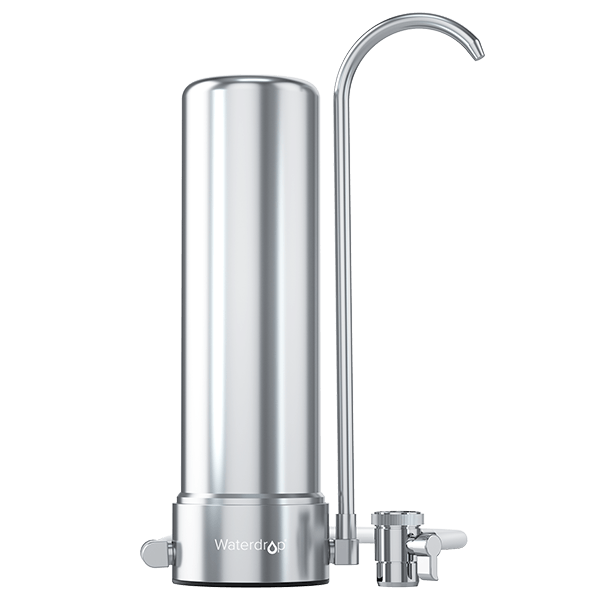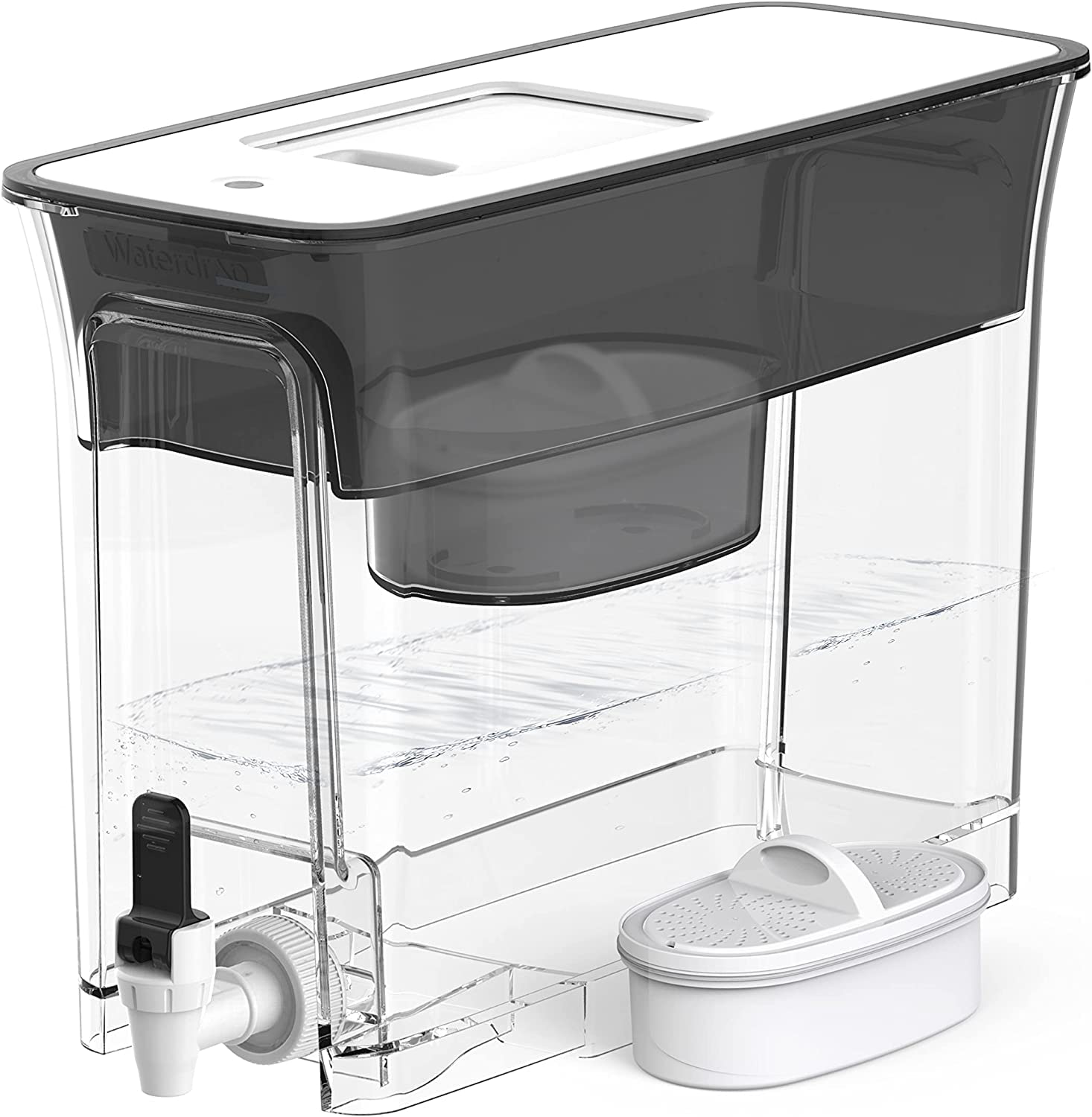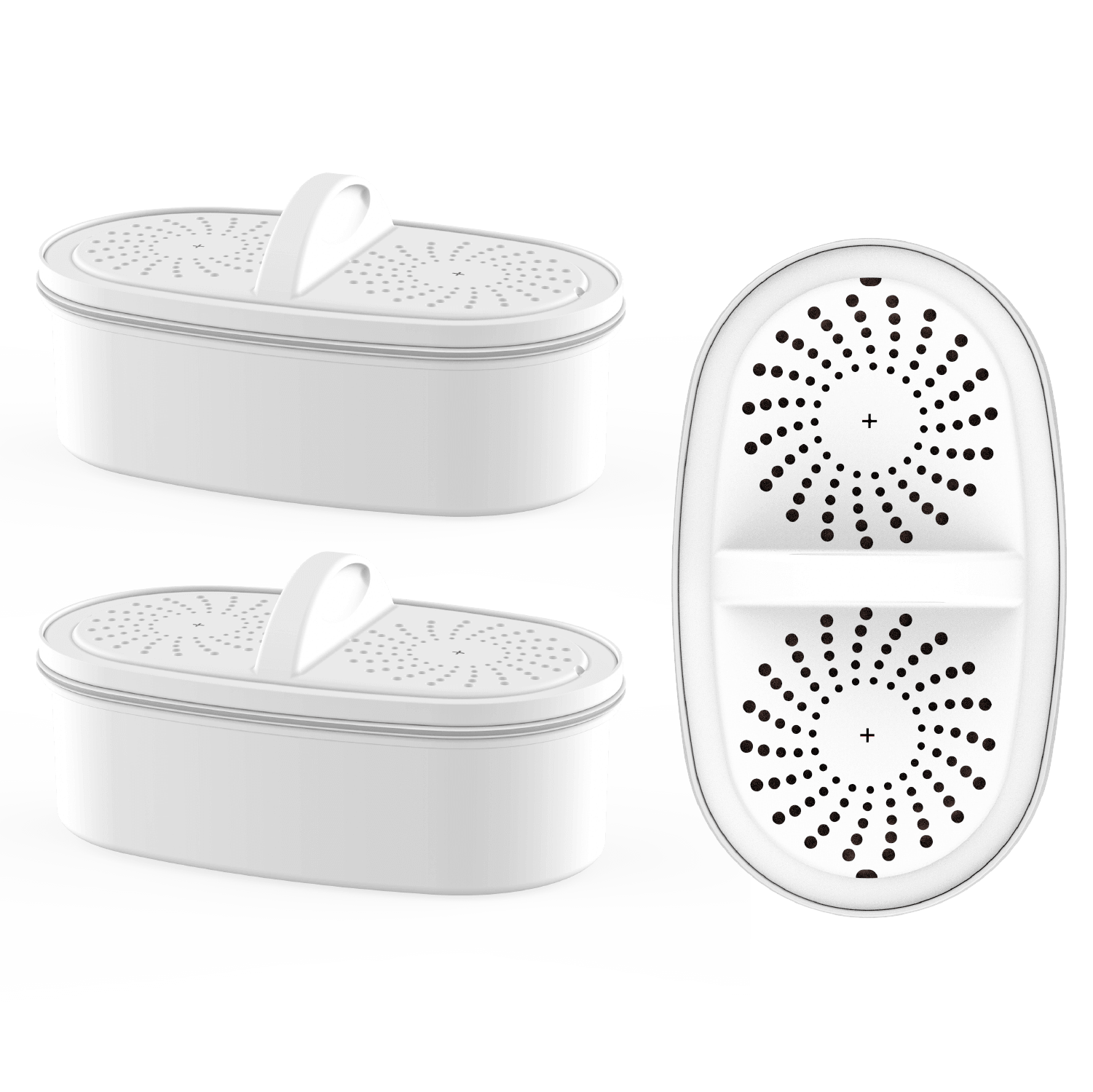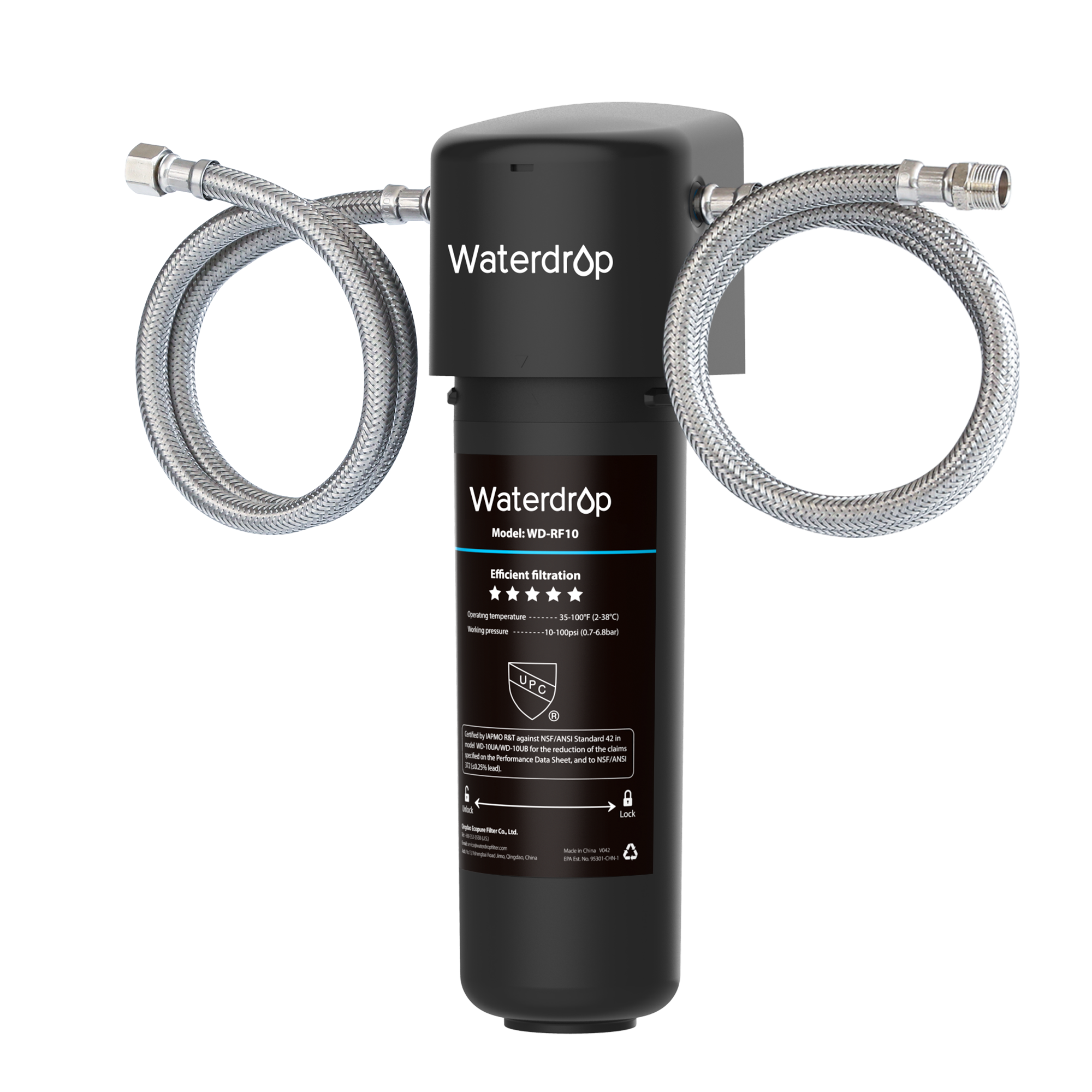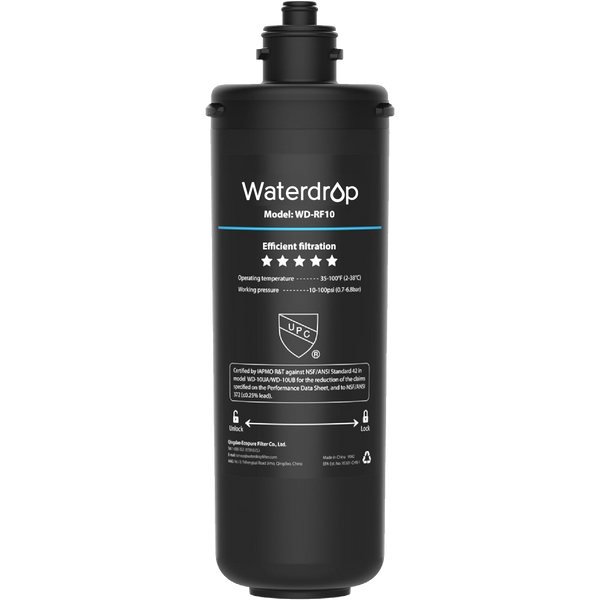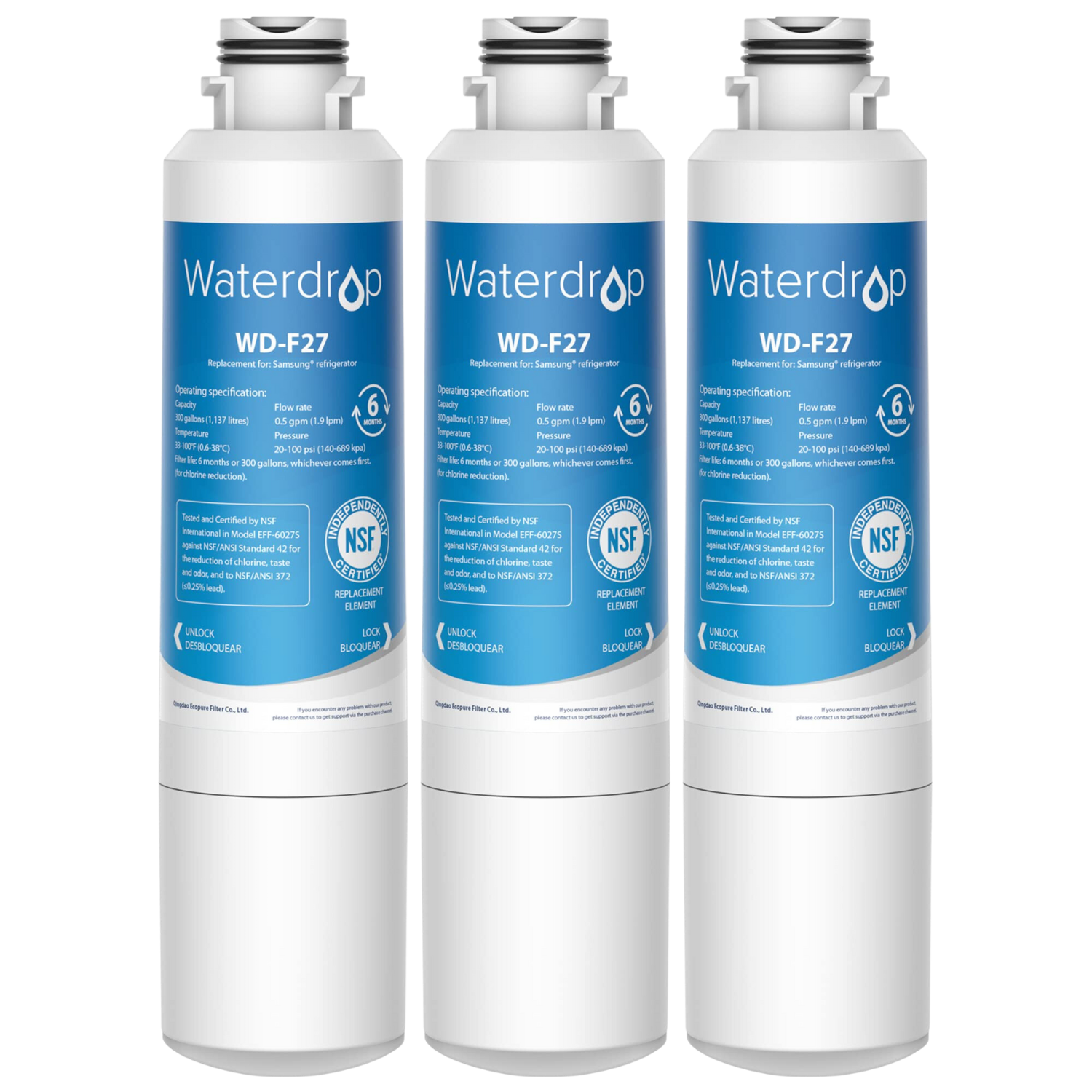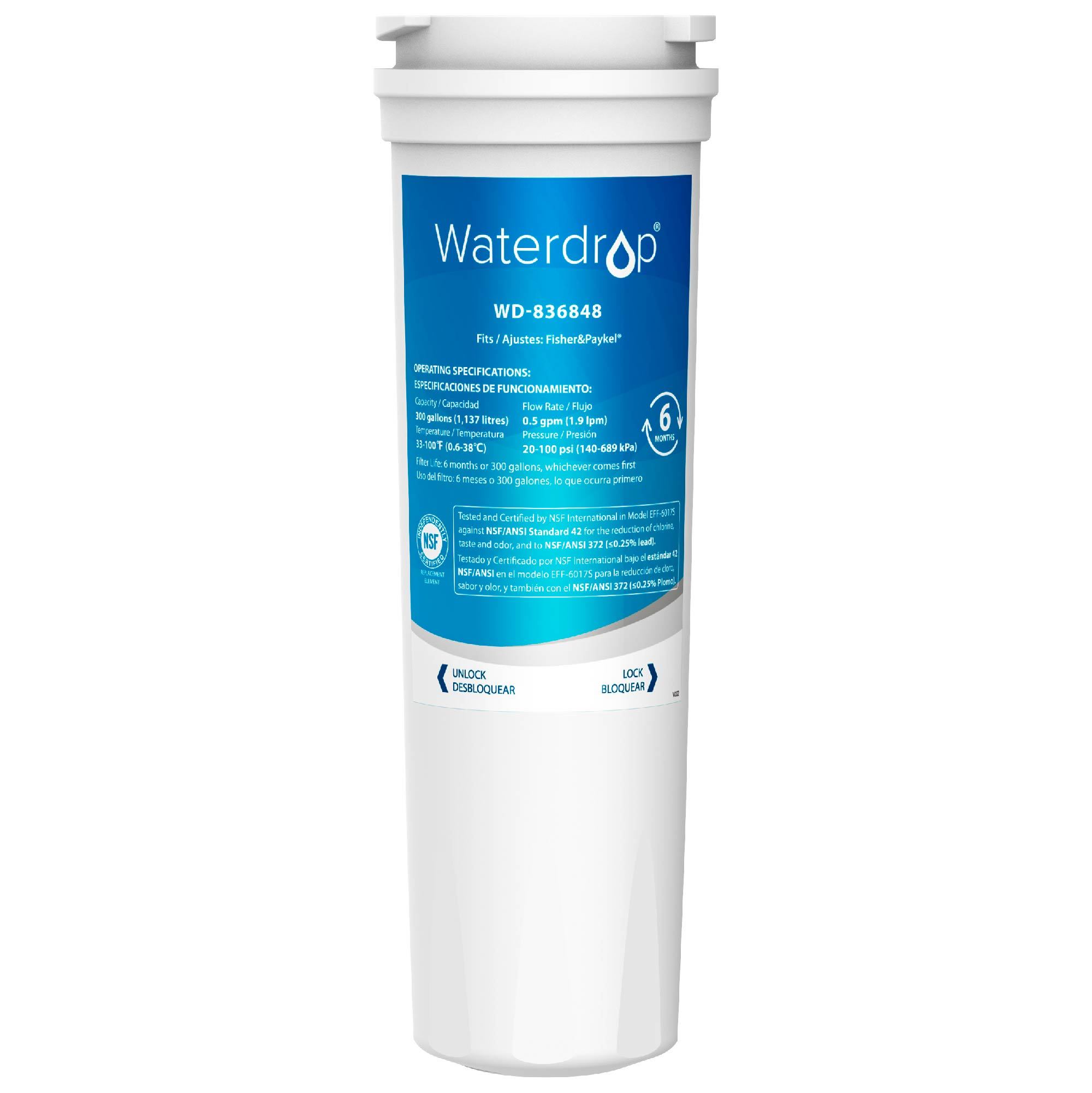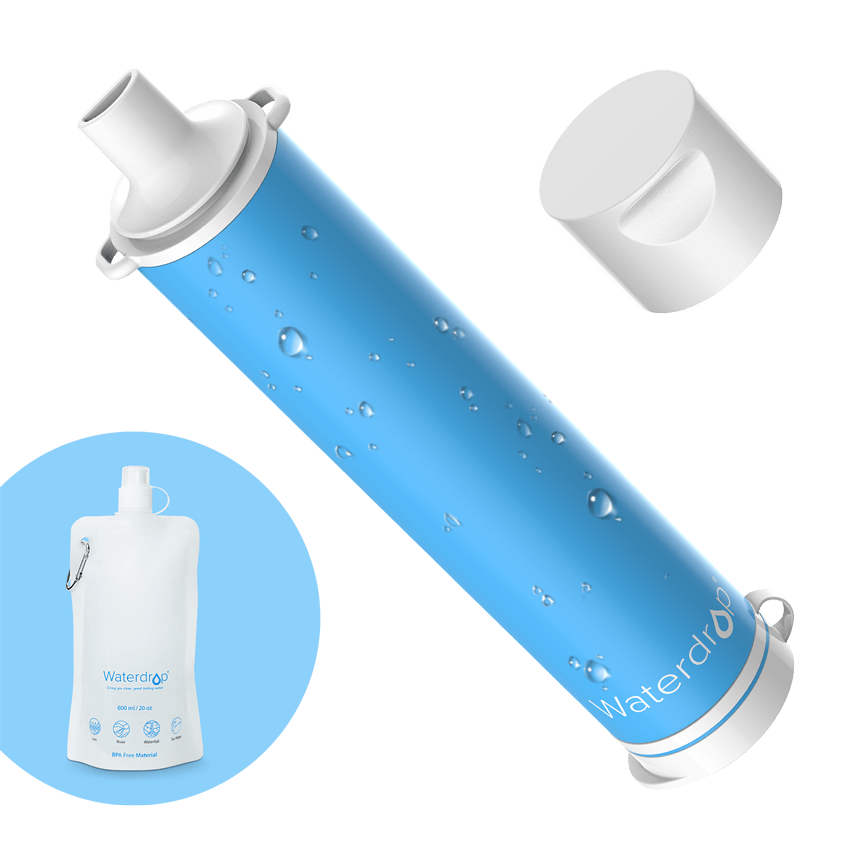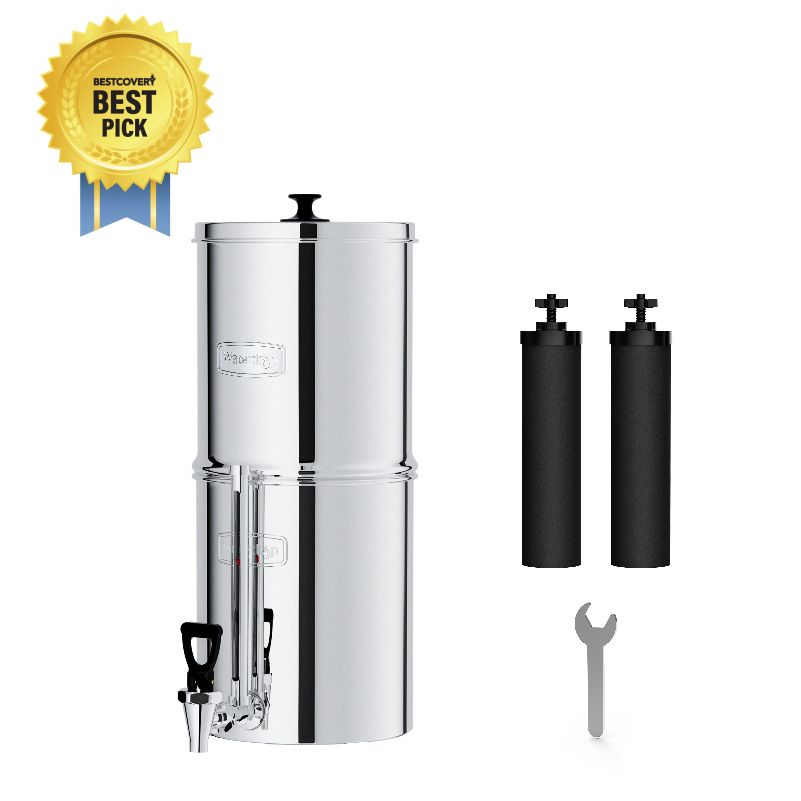How to Choose a Faucet Water Filter
by Dr. Jonathan Doyle - Updated August 16, 2020
Tap water is not the perfect water for the whole family to use. Waterdrop Faucet Water Filter can better your water and be used in both kitchen and bathroom, easy to install and can meet the different of needs of users.
Is tap water at home clean?
Tap water comes from municipal water sources that are treated by the public water system and then transported through municipal pipes before flowing out of your faucet. Although the factory has filtered it, tap water is not absolutely safe. For example, water may be recontaminated by aging pipes. Therefore, tap water in our homes does not seem to be suitable for direct drinking.
Many people would like to install a faucet filtration system to ensure the safety of domestic water use. When choosing a faucet filtration system, you must consider whether the faucet filtration system is worth buying. What kind of faucet filtration system works well? Which brand is better? Which one is cost-effective?
After reading this article, you will have the answers to these questions.
What do faucet water filters remove?
The filtered water of faucet filtration systems can be used for washing fruit, making coffee, brushing teeth, washing face, making infant formula, and so on. The faucet filtration system filters out suspended pollutants, insects, algae, and rust, as well as effectively removes taste and odor, chemicals, heavy metals, estrogen, pesticides, and so on.
Common filter media for faucet filtration systems contain activated carbon fiber (ACF), CTO carbon block, ceramic, and so on. However, not all faucet filtration systems can meet the standards for direct drinking. Some companies have employed innovative technology to develop the ACF Long-Lasting Water Faucet Filtration System. The filtered water is tested to meet the standards for direct drinking, which fully ensures daily water safety for families.

How to choose a faucet water filter?
The faucet filtration systems on the market rely on filters to remove harmful substances and purify water. The filter element—the soul of the faucet filtration system—plays a crucial role in water filtration.
Common filter media contain CTO carbon block, activated carbon fiber (ACF), or ceramic. Their filtration effects, characteristics, and prices are different.
CTO carbon block
CTO carbon block is processed and compressed based on granular activated carbon (GAC). CTO carbon block has a better contaminant removal capacity than GAC. It is used in water treatment equipment to remove chlorine, chemical pesticides, fine impurities, taste and odor from water. Due to its lower production costs, CTO carbon block is cheaper. However, its filtration effect is not the best, and its service life is short, which means that it is not an economical choice.
Activated carbon fiber (ACF)
Traditional activated carbon is a form of carbon processed to have small, low-volume pores. Normally, activated carbon is made in particulate form as a powder or fine granule. Meanwhile, ACF is a microporous material with a fiber shape and a well-defined porous structure. The adsorbing capacity for organic gases is several times to dozens of times higher than that of GAC in the air and 5-6 times higher in aqueous solution. The adsorption rate is 100-1000 times faster.

What are the differences between ACF and traditional activated carbon?
The structure of ACF:
The pore diameter of ACF is 5-20 μm and the specific surface area is about 1300-2200 m²/g. There are no macropores in ACF. For example, the Waterdrop ACF Long-Lasting Water Faucet Filtration System has an average pore diameter of 0.5 μm, reducing lead, fluoride, and other contaminants. Compared with traditional activated carbon, ACF has more uniform micropores, a large adsorbing capacity, and a fast adsorbing rate. ACF is in uniform contact with adsorbed substances so that the adsorption material can be fully utilized.
Due to its high-quality material and the input cost of new technology, ACF costs more than CTO. Therefore, the price will be relatively high. However, the ACF filter has a long service life of 3-6 months. By spending less than $0.10 per day, your family can enjoy unlimited safe and pure drinking water.
Ceramic filter
The ceramic filter is used mainly for filtration, antibacterial, and activating treatment of drinking water, removing chlorine, suspended pollutants, organic chemicals, taste and odor. As a terminal drinking water filter, ceramic has a filtration effect that is poorer than those of ACF and CTO carbon block. It cannot filter out some inorganic salts and heavy metals. Therefore, it is not recommended.
Comparison of three filter media
:Service life (from long to short): ACF> CTO> Ceramic
Filtration effect (from good to bad): ACF> CTO> Ceramic
Price (from high to low): ACF> CTO> Ceramic
Overall, ACF is the most cost-effective and economical filter media.
Waterdrop faucet water filter
Waterdrop is a well-known professional water filtration brand. The ACF Faucet Filtration System is tested and certified by NSF International against NSF/ANSI standard 42 for the reduction of chlorine, taste and odor, and to NSF/ANSI 372 for lead-free material.
The Waterdrop ACF Faucet Filtration System has 6 filtration stages to effectively reduce lead, fluoride, and chlorine in tap water. In particular, the activated carbon fiber can remove 93% of chlorine, taste and odor, and many other contaminants.

Check here to learn more about Waterdrop water faucet filtration System.
The design of a simple switch between quality filtered water and regular tap water helps prolong the filter’s service life. Additionally, the filtered water faucet adopts leak-proof technology and can very easily be attached to your faucet with the various adapters included.
Waterdrop Facebook homepage will send coupons regularly. Follow @waterdropdirect for more information on discounts.


